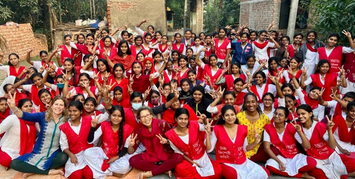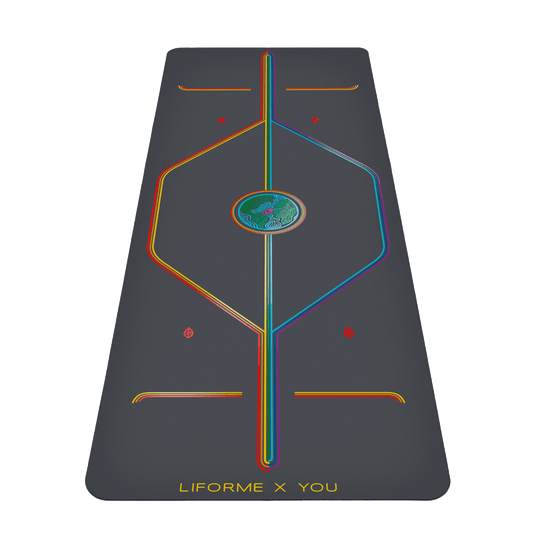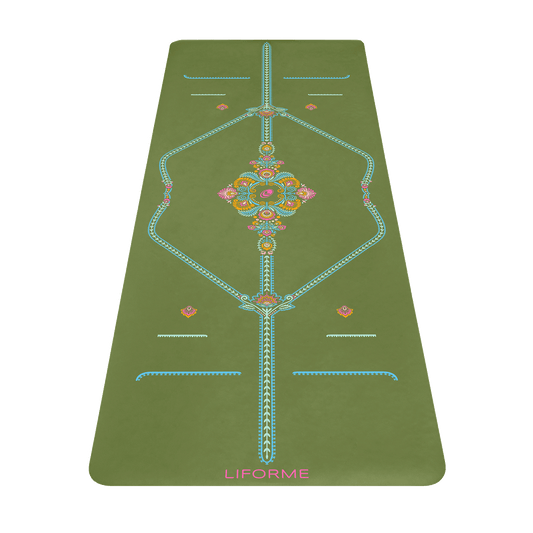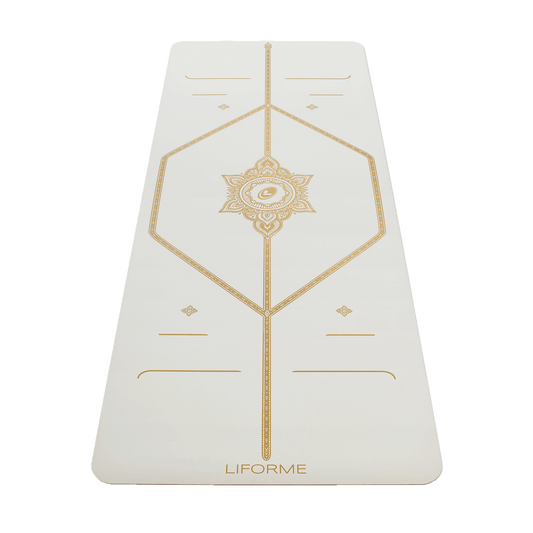The Sanskrit words Lokah Samastah Sukinho Bhavantu comprise one of the most popular chants used in modern yoga classes. Translated into English, the words mean May All Beings Everywhere Be Happy and Free, a sentiment we can certainly all get behind. Chanting this mantra acts as a reminder to think globally, prompting us to go beyond ourselves and our small circle of family and friends to really wish that everyone, everywhere be able to experience the joys of happiness and freedom in their lives. These rights are fundamental in an ethical society and never deserved more by some people than by others or even by some species more than others. (Because ‘all beings’ includes animals too!) Saying these words brings them to the forefront of our consciousnesses so we can act upon them.
Origins
Though the original source of the mantra is unknown, it is said to be part of a traditional Sanskrit sloka or song of praise. Credit is often given to Jivamukti Yoga co-founders Shannon Gannon and David Life for bringing it into contemporary yoga. In their book Jivamukti Yoga (2002), they write that the mantra was given to them by one of their gurus, Swami Nirmalananda, who they first visited in India in 1986.
Call to Action
The simplest English translation of the mantra is “may all beings everywhere be happy and free.” In the Jivamukti text, a further explanatory coda is added: “may the thoughts, words, and actions of our lives contribute to that happiness and to that freedom for all.”
This interpretation encourages us to take action based on the mantra’s message. Wishing happiness and freedom for all beings is a wonderful first step. It seems obvious enough but there are so many ways to separate ourselves and to think of others as different. It is instructive to be reminded that all people and animals are equally worthy of freedom and happiness. But is chanting a mantra and hoping that someone else will take care of it enough? The Jivamukti translation puts into words the realisation that, no, it isn’t. No one else is going to do this work for us. It’s up to the people who have the opportunity to manifest change. The privileged, the educated, the ones that already have the freedom to choose a life’s path must make it possible for others to join them.
On Animals
The mantra specifies all beings, which includes animals. This is right in line with the yoga principle of Ahimsa, which means non-violence. Many yogis see it as a dietary directive, a reason to choose to be to be vegetarian or vegan in order to harm animals as little as possible. The integration of this idea into your life is up to each individual. Let’s says there’s a spectrum, with a person who won’t flick away a spider on one end and a fast food burger at the other. We all find ourselves somewhere on the spectrum, carrying our cultures and our customs with us.
We should each do what we can to move the dial toward more ethical purchasing habits, making sure that the animal products we do buy and consume are from the most humane sources available, both for the sake of the planet and out of respect for the lives of the animals we do choose to eat. Opting out of factory farmed and mass produced animal products is better for your health, the planet, and, of course, the animals directly involved. Supporting work that prevents cruelty to domestic animals and livestock is a good place to start.
Be the Mantra You Want to See in the World
What can you personally do to advance the message of the mantra and help bring happiness and freedom to all beings? It may look like a daunting order, but there are actually so many things that you can do in your own live that have a positive effect. Here are a few ideas to get you inspired.
1. Be kind.
If you don’t have the time or resources to volunteer or donate, you may feel like there’s nothing you can do. But that’s really not the case. Take every interaction as an opportunity to show kindness and patience to other humans and animals, and, in doing so, contribute to the greater happiness of all.

2. Be good to pets.
Adopt a shelter dog or cat to give them a better life. If you love animals but long-term pet ownership isn’t on the cards for you just now, consider fostering a needy animal. Reputable shelters have an abundance of volunteer opportunities. You can walk dogs, play with puppies, help train animals for adoption. Contact your local (hopefully no-kill) shelter and find out how you can make these animals’ lives better.

3. Choose a plant-based diet.
Michael Pollan, who writes thoughtfully about food, gave us this now classic maxim: “Eat food. Not too much. Mostly plants.” As noted above, dietary choices are very personal but getting behind a “mostly plants” plan can make a big difference in your health, the environment, and the meat industry.

4. Donate sincerely.
Small donations are the bread and butter (apologies, vegans!) of grassroots organisations. If you find one doing work that touches your heart, give what you can. It does add up. Support ethical businesses with charitable aims. And if you happen to have deep pockets, give deeply.

5. Be political.
Human rights, women’s rights, minorities’ rights, LGBTQ rights, animal rights. All of these rights need to be protected by law. That means supporting the political leaders that are willing to stand up and be a voice for all ‘beings’ that need help. Rally, vote, take advantage of every right afforded to citizens in a democracy.
Lokah Samastah Sukinho Bhavantu resonates with so many yogis because it represents what yoga means to us. How this practice that is so personal can also be so universal. How something that is for the individual good is also for the greater good. How you can do something for yourself that it also completely unselfish. How we all want to be happy and free and share that joy with all other living beings.





































